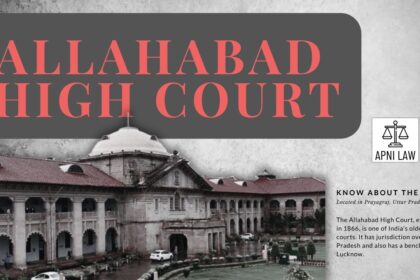Code
(1) If at the trial of any person before a Magistrate or Court of Session, it appears to the Magistrate or Court that such person is of unsound mind and consequently incapable of making his defence, the Magistrate or Court shall, in the first instance, try the fact of such unsoundness and incapacity, and if the Magistrate or Court, after considering such medical and other evidence as may be produced before him or it, is satisfied of the fact, he or it shall record a finding to that effect and shall postpone further proceedings in the case.
1[(1A) If during trial, the Magistrate or Court of Sessions finds the accused to be of unsound mind, he or it shall refer such person to a psychiatrist or clinical psychologist for care and treatment, and the psychiatrist or clinical psychologist, as the case may be shall report to the Magistrate or Court whether the accused is suffering from unsoundness of mind:
Provided that if the accused is aggrieved by the information given by the psychiatric or clinical psychologist, as the case may be, to the Magistrate, he may prefer an appeal before the Medical Board which shall consist of–
(a) head of psychiatry unit in the nearest government hospital; and
(b) a faculty member in psychiatry in the nearest medical college.]
2[(2) If such Magistrate or Court is informed that the person referred to in sub-section (1A) is a person of unsound mind, the Magistrate or Court shall further determine whether unsoundness of mind renders the accused incapable of entering defence and if the accused is found so incapable, the Magistrate or Court shall record a finding to that effect and shall examine the record of evidence produced by the prosecution and after hearing the advocate of the accused but without questioning the accused, if the Magistrate or Court finds that no prima facie case is made out against the accused, he or it shall, instead of postponing the trial, discharge the accused and deal with him in the manner provided under section 330:
Provided that if the Magistrate or Court finds that a prima facie case is made out against the accused in respect of whom a finding of unsoundness of mind is arrived at, he shall postpone the trial for such period, as in the opinion of the psychiatrist or clinical psychologist, is required for the treatment of the accused.
(3) If the Magistrate or Court finds that a prima facie case is made out against the accused and he is incapable of entering defence by reason of mental retardation, he or it shall not hold the trial and order the accused to be dealt with in accordance with section 330.]
Explain the Code
Section 329 CrPC outlines the following steps:
- If, during the trial, the Court has reason to believe that the accused is of unsound mind and incapable of understanding the proceedings or making his defense, the Court may order a medical examination of the accused by one or more qualified medical practitioners.
- The Court may, based on the medical report, order the accused to be detained in a mental hospital or other suitable place of safe custody. This is done to ensure the accused’s well-being and prevent them from harming themselves or others.
- While the accused is detained, the Court may proceed with the trial as if the accused were present. However, the accused’s legal representative or guardian can still participate in the proceedings.
- If the medical report confirms that the accused is of unsound mind, the Court may pass an order acquitting the accused. This is because a person cannot be held criminally responsible for their actions if they are unable to understand the nature of their actions or distinguish between right and wrong.
- If the medical report shows that the accused is temporarily unsound mind, the trial may be adjourned until the accused regains their sanity.
Illustrate the Code
Suppose during the trial of a robbery case, the accused begins to behave erratically and makes incoherent statements. The Court, suspecting the accused is of unsound mind, orders a medical examination. The medical report confirms that the accused is suffering from a severe mental illness and is incapable of understanding the proceedings. In this case, the Court might order the accused to be detained in a mental hospital and proceed with the trial in their absence. If the accused’s condition doesn’t improve, the Court may ultimately acquit them based on their unsound mind.
Common Questions and Answers
Q: What if the accused pretends to be of unsound mind to avoid trial?
A: The Court will carefully examine the accused’s behavior and consider the medical report before reaching a conclusion. If the Court finds that the accused is faking mental illness, the trial will proceed as normal.
Q: Who decides whether the accused is of unsound mind?
A: The Court will rely on the medical report from qualified medical practitioners. However, the Court has the ultimate authority to decide whether the accused is of unsound mind.
Q: What happens to the accused after they are acquitted due to unsound mind?
A: The Court may order the accused to be detained in a mental hospital or other suitable place of safe custody until they are deemed to be no longer a danger to themselves or others.







